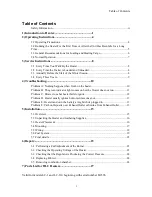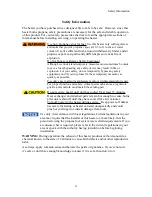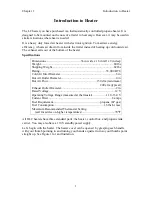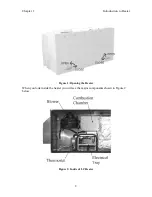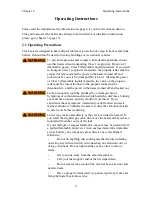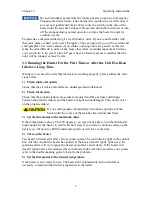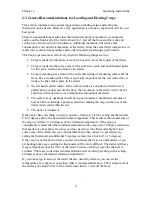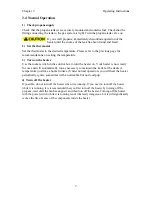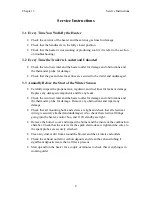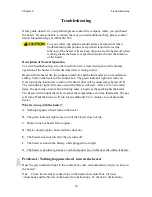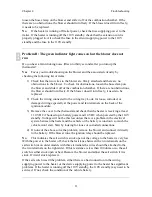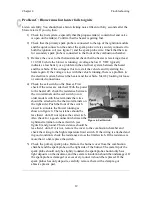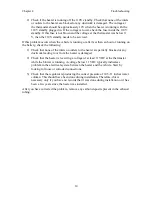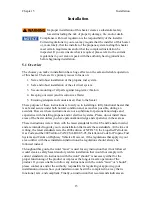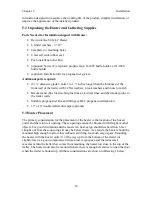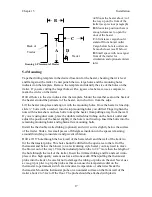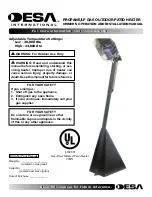
Chapter 2
Operating Instructions
Operating Instructions
Please read the important safety information on page ii if you haven’t already done so.
This guide assumes the heater has already been installed. For installation instruction
please go to chapter 5 (page 15).
2.1 Operating Precautions
This heater is designed to heat and provide freeze protection of cargo in trailers and truck
bodies. It should not be used for heating buildings or recreational vehicles.
To prevent explosions and comply with federal regulations, do not
use this heater when transporting Class 1 (explosive), Division 2.1
(flammable gases), Class 3 (flammable liquid) materials. If you wish
to transport Class 1 (explosive) materials, the propane tanks must be
emptied or removed and the power to the heater turned off and
locked out. If you wish to transport Division 2.1 (flammable gases)
or Class 3 (flammable liquid) materials, the valve on the propane
tank must be closed, the hose to the propane tanks must be
disconnected,. and the power to the heater turned off and locked out.
Carbon monoxide could be produced by a damaged heater.
Symptoms of carbon monoxide include headache, dizziness, burning
eyes and nose, nausea, and dry mouth or sore throat. If you
experience these symptoms, immediately seek fresh air and seek
medical attention. Ventilate the area to reduce the carbon monoxide
to safe levels before reentering.
Correct any leaks immediately as they are a serious fire hazard. If
you smell the slightest gas odor, do not use the heater until you have
found and fixed the source of the leak.
If you smell gas or suspect flammable vapours may be present (from
a spilled flammable liquid, etc.) in an enclosed area, take immediate
action. Follow your company's procedure if one is established.
Otherwise:
•
Do not do anything that could ignite the mixture including
operating an electrical switch, disconnecting an extension cord, or
using your phone. Do not light matches or any other source of
flame.
•
Get everyone away from the area immediately.
•
Call your fuel supplier and/or the fire department
•
Do not reenter the area until the area has been aired out and
declared safe.
•
Have a properly trained service person repair any leaks and
bring the heater back into service.
4



